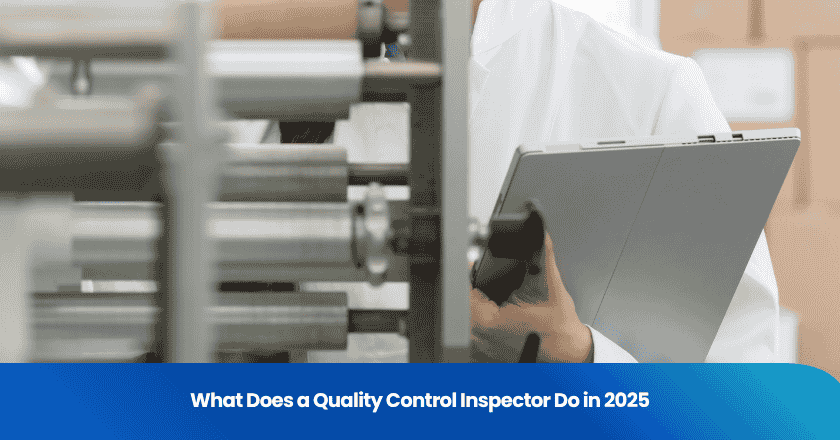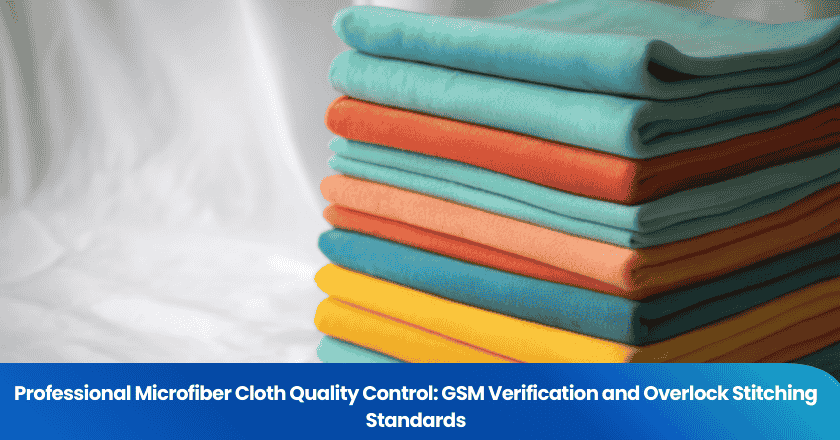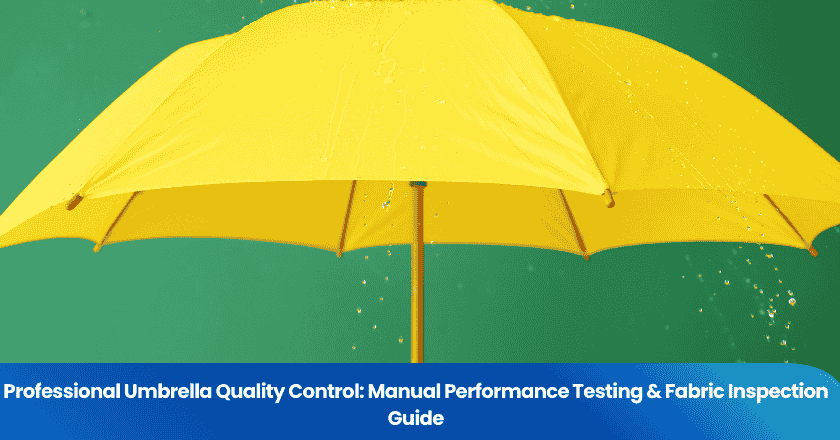
As a quality control inspector in 2025, you examine products and processes to guarantee they meet strict standards. Quality control inspection services play a vital role in modern industries, helping companies save time and reduce costs. Technology has transformed your responsibilities, making inspections faster and more accurate. You now rely on automation and advanced data analysis to spot issues and maintain high quality.
Key Takeaways
- Quality control inspectors in 2025 use advanced technology like AI and automation to enhance inspection accuracy and efficiency.
- Strong documentation skills are essential for inspectors to support compliance and continuous improvement in quality control processes.
- Continuous training in digital tools and industry standards is crucial for inspectors to stay relevant and effective in their roles.
- Inspectors can advance their careers by gaining certifications and experience, leading to roles like quality assurance manager or compliance officer.
- Quality control inspection services are vital across various industries, including manufacturing, food, and pharmaceuticals, each requiring specific standards and practices.
Quality Control Inspector Tasks
As a qc inspector in 2025, you play a crucial role in maintaining product quality and compliance. Your daily responsibilities cover a wide range of activities, from visual inspections to precise measuring and thorough documentation. These tasks ensure that every product meets industry standards and customer expectations.
Visual Inspections
You begin your day with visual inspections, which remain a fundamental part of quality control inspection services. This process involves examining products and materials with your eyes, often using specialized lighting and magnifying tools. Visual inspection helps you detect surface-level defects, damage, or irregularities before products move further along the production line.
Tip: Consistent lighting between 500 and 1000 lux and the use of magnifying glasses or microscopes can help you spot even the smallest flaws.
Common errors you might find include:
- Surface defects such as scratches or dents
- Alignment issues where components do not fit together properly
- Visual anomalies that stand out from standard samples
Visual inspection is often the first step in the quality control inspection process. It allows you to catch problems early and prevent costly mistakes later.
Measuring and Testing
After visual checks, you move on to measuring and testing. These tasks require essential skills and technical knowledge, especially if you work as a cnc quality control inspector. You use a variety of tools and technologies to verify that products meet precise specifications.
| Tool/Technology | Description |
|---|---|
| Measurement Instruments | Calipers, gauges, and rulers to check dimensions |
| Lighting | Ensures you see defects clearly |
| Magnifying Tools | Magnifying glasses, microscopes, and borescopes for small parts |
| Automated Visual Inspection Systems | High-resolution cameras and machine vision for fast, accurate inspections |
| AI and Advanced Technologies | Machine learning and deep learning for enhanced defect detection |
You also follow strict measurement standards. For example, ISO 15189:2022 requires you to evaluate and document measurement uncertainty (MU) for every test. You must compare MU against performance specifications and review it regularly. These standards help you maintain accuracy and reliability in every inspection.
Note: Mastering these tools and standards is one of the essential skills for any qc inspector. Your ability to adapt to new testing technologies sets you apart in the field.
Reporting and Documentation
Reporting and documentation form the backbone of quality control inspection. You record your findings at every stage, from receiving raw materials to final product checks. Accurate documentation supports compliance, trend analysis, and continuous improvement.
| Stage of Inspection | Description |
|---|---|
| Receiving Raw Materials or Components | You document whether supplied goods meet required specifications before production. |
| During Production | In-process checks help you detect deviations early and confirm processes are running correctly. |
| Final Product/Service Inspection | You ensure the finished product meets all quality standards before it reaches the market. |
| Handling Customer Complaints or Returns | Your reports provide data to understand defects and implement corrective actions. |
| Supplier Evaluation | You offer evidence of quality consistency and adherence to agreements. |
| Regulatory Compliance | Your reports serve as essential documentation for audits and legal requirements. |
In 2025, you rely on digital solutions to document non-conformities and corrective actions. Modern Quality Management Systems (QMS) allow you to track key performance indicators, such as closure rates and time to resolve issues. When you identify a problem, you assign a CAPA (Corrective and Preventive Action) number, describe the issue, perform a root cause analysis, and document every step taken to resolve it.
Pro Tip: Strong documentation and reporting skills are essential skills for any qc inspector. They help you support audits, improve processes, and demonstrate compliance with industry regulations.
Your daily tasks as a qc inspector require attention to detail, technical expertise, and a commitment to quality. By mastering visual inspections, measuring and testing, and thorough documentation, you ensure that quality control inspection services deliver consistent results across every industry.
Skills & Qualifications for QC Inspectors
Technical Skills
You need a strong set of technical skills to succeed as a quality control inspector in 2025. These skills help you identify defects, measure product specifications, and ensure compliance with industry standards. You work with advanced tools and technologies every day. Here are some of the most important technical skills you should master:
- Calipers and micrometers for precise measurements
- Magnetic particle and NDE (non-destructive examination) techniques
- Understanding of safety standards and quality standards
- Familiarity with ISO and GMP requirements
- Ability to read engineering drawings and inspection procedures
- Use of CMM (coordinate measuring machines) and optical comparators
- Experience with inspection reports and test equipment
- Knowledge of SPC (statistical process control) and quality databases
- Visual inspections and in-process inspection methods
- Handling quality issues and corrective action processes
You rely on these skills to solve problems quickly and maintain high standards. Your problem-solving ability allows you to address quality issues before they affect production.
Education & Certification
You can start your career as a quality control inspector with a variety of educational backgrounds. Most entry-level positions require a high school diploma, but formal training can give you an advantage. Some employers prefer candidates with an associate or bachelor's degree, especially for specialized roles.
You should consider formal training programs to build your expertise. Earning certifications can help you stand out in the job market. Popular certifications for a certified quality inspector include:
- Certified Quality Engineer (CQE)
- Quality Management System (QMS) Auditor
- Six Sigma Green Belt and Black Belt
- GMP Certification
- HACCP Certification
- ISO 9001:2015 Lead Auditor Training
- FDA Compliance Training
- Data Analytics for Quality Assurance
Formal training and certification show your commitment to quality and continuous improvement. They also prepare you for advanced roles and new technologies.
Communication Skills
You must communicate clearly with production teams and management. Effective communication helps you report findings, explain defects, and suggest changes to processes. You need to establish direct channels for sharing information and collaborating with others. Setting clear standards for product quality makes your reports easy to understand.
Tip: Use specific and measurable language when describing quality issues. This approach supports accountability and helps everyone stay aligned with quality objectives.
Strong communication skills support your problem-solving efforts. You keep everyone informed and ensure that quality control inspection services run smoothly.
Quality Control Inspection Services Across Industries
Quality control inspection services play a vital role in every industry, but your responsibilities and focus areas shift depending on the sector. You must adapt your approach to meet specific quality standards and regulatory requirements.
Manufacturing
In manufacturing, you oversee quality control inspection services that focus on product excellence and defect prevention. You use protocols like design validation and Failure Mode and Effects Analysis (FMEA) to identify risks early. You qualify suppliers, conduct ongoing audits, and calibrate inspection equipment to maintain consistency. Your inspection program protects the organization from risks and supports long-term competitiveness.
- You balance identifying defects with preventing them.
- You implement robust inspection programs to ensure business success.
- You follow strict standards for calibration and supplier qualification.
Tip: Regular audits and equipment calibration help you maintain high quality standards and reduce production errors.
Pharmaceuticals
In pharmaceuticals, quality control inspection services must meet the highest regulatory standards. You collaborate across functions, digitize processes, and undergo ongoing training to ensure compliance. Inspections by agencies like the FDA and EMA focus on Good Manufacturing Practices (GMP) and Good Clinical Practices (GCP). You maintain detailed documentation and data integrity throughout every inspection.
You adapt to changing protocols, especially with new executive orders that may reduce regulatory barriers. Your commitment to validated methods and reliable data supports global compliance.
Note: In pharmaceuticals, routine inspections occur every 2-3 years, and agencies use different reporting methods to document violations and findings.
Quality control inspection services differ across industries, but your attention to detail and adherence to quality standards remain constant. You overcome sector-specific challenges by applying best practices and staying informed about regulatory changes.
Technology Impact on QC Inspectors
Digital Tools & Automation
You now rely on advanced digital tools and automation to streamline every inspection process. These technologies help you work faster and more accurately. As a qc inspector, you use a range of systems that transform how you approach quality assurance.
- AI algorithms detect defects and improve accuracy in real time.
- IoT devices collect data during inspections, allowing you to monitor the process continuously.
- Cloud computing supports seamless reporting and data management, making it easier to track results.
- Drones and robotic systems perform automated equipment checks, which increases safety and efficiency.
- AI-based visual inspection systems reduce human error and enhance defect detection.
Automation has changed your daily workflow. You see AI and machine learning integrated into quality assurance, which boosts efficiency. Self-healing test automation adjusts testing scripts without manual input. Hyperautomation combines several technologies to speed up decision-making and testing. Scriptless automation testing lets you create automated tests with little or no coding. In food production, robotic systems handle tasks like ingredient portioning and package inspection, maintaining high standards.
Tip: Embrace these digital tools to stay ahead in your field and deliver consistent results.
Adapting to New Methods
You must adapt quickly to new methods and technologies. Continuous training is essential for you to keep pace with digital workflows and evolving inspection techniques. As a cnc quality control inspector, you need to understand AI-driven processes and data interpretation.
You benefit from cross-functional training with production teams. This approach helps you understand the entire process and improves collaboration. In 2025, you also need advanced training in robotics and digital twins, especially when working in hazardous environments. By mastering these skills, you ensure the inspection process remains efficient and reliable.
Note: Ongoing learning and adaptability are key to your success as technology continues to evolve.
Career Outlook for Quality Control Inspectors
Job Trends in 2025
You face a changing landscape as a quality control inspector in 2025. The number of jobs in this field is projected to decline by 3% between 2023 and 2033. Many companies continue to automate inspection processes, which reduces the need for manual roles. However, you still see around 65,200 job openings each year. Most of these jobs arise because workers retire or move to other careers. You find the highest demand for qc inspector positions in industries that value precision and safety.
You notice that jobs in automotive, healthcare, and food & beverage remain strong. These sectors require strict quality standards, so your skills stay relevant. You can expect steady career opportunities if you focus on industries with high demand.
Tip: Stay updated on industry trends and new technologies. This approach helps you secure jobs in sectors with ongoing growth.
Advancement Opportunities
You have several paths for career growth as a quality control inspector. Many professionals move into supervisory or management roles after gaining experience. You can pursue jobs such as quality assurance manager, compliance officer, or process improvement analyst. These positions offer higher salaries and more responsibility.
- Quality assurance manager
- Compliance officer
- Process improvement analyst
To advance your career, you need additional qualifications and certifications. Employers often look for candidates with a bachelor's degree in a related field or equivalent experience. You should have at least five years in quality control or quality assurance, including two years in a supervisory role. Certifications like Certified Quality Inspector (CQI), Six Sigma Green Belt or Black Belt, and ISO 9001 Internal Auditor can boost your career prospects.
| Required Qualifications | Preferred Qualifications |
|---|---|
| Bachelor's degree in a related field or equivalent experience | Experience in a manufacturing or production environment |
| 5+ years of experience in quality control or quality assurance, with at least 2 years in a supervisory role | Certification in quality control or quality assurance (e.g., CQE, CQA) is a plus |
| Strong knowledge of quality control methodologies and standards (e.g., ISO, Six Sigma) | Familiarity with quality management software and tools |
You can also benefit from specialized training in digital tools and quality management systems. These skills help you stand out when applying for advanced jobs. If you invest in your education and certifications, you increase your chances for career growth and leadership roles.
Note: You shape your career by building expertise and seeking new opportunities in high-demand industries.
You take on more comprehensive inspection and testing tasks in 2025, using advanced equipment and detailed documentation.
| Responsibilities | 2025 Focus | Previous Years |
|---|---|---|
| Inspection & Testing | Comprehensive processes | Basic inspections |
| Documentation | Detailed reports | Less emphasis |
| Collaboration | Closer teamwork | Limited interaction |
Industry changes and technology, such as AI and digital twins, drive your role forward. Quality control inspection services help you identify issues early, protect customer trust, and support career growth in evolving sectors.
FAQ
What skills do quality control inspectors need in 2025?
You need strong attention to detail, technical knowledge, and communication skills. Quality control inspectors also benefit from problem-solving abilities and adaptability. You must understand digital tools and data analysis. These skills help you meet modern quality control inspection needs.
How does training help quality control inspectors stay current?
You gain new skills through regular training. This keeps you updated on the latest inspection methods and technologies. Training programs focus on digital tools, safety standards, and industry regulations. You improve your performance and remain competitive in your field.
What industries employ quality control inspectors?
You find quality control inspectors in manufacturing, food, pharmaceuticals, automotive, and healthcare. Each industry has unique standards and challenges. CNC quality inspectors work mainly in advanced manufacturing. You adapt your approach based on the sector’s requirements.
How often should quality control inspectors complete training?
You should complete training at least once a year. Many companies require ongoing training to keep you updated on new regulations and technologies. Regular training ensures you maintain high standards and follow best practices.
Can you advance your career as a quality control inspector?
You can move into supervisory or management roles. Many quality control inspectors pursue advanced certifications or join a training program to qualify for higher positions. You may become a quality assurance manager or process improvement analyst with experience and further education.
Grow your business with TradeAider Service
Click the button below to directly enter the TradeAider Service System. The simple steps from booking and payment to receiving reports are easy to operate.





